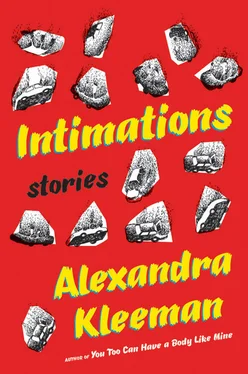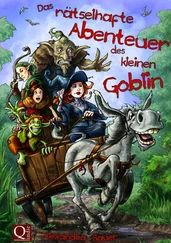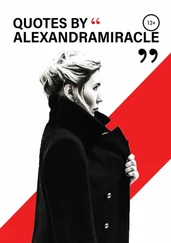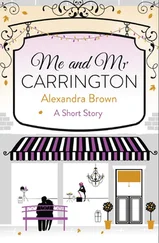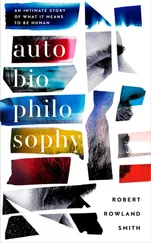The sky outside is strange, its papery surface, its white flank. Be handed a coat, a hat, a set of galoshes. We are going outdoors. We never go outdoors.
We have one driveway and it is never used. It leads from the garage with its one shiny car, down past our door, past a little path that leads from our door, past our door, down to a mailbox that we have not looked inside for quite some time.
Mother on one side, Father on the other, a family walks down the driveway to the end of the driveway. It is as though we have never used our eyes before, we are looking right and left, right and left.
Today is a day without weather. We don’t know where it went, but it has gone and thus we walk around, soft-skinned, into the air. Is this walking the ultimate aim of my Father’s efforts to cancel the weather? Are we achieved at last?
There is no wind, there is no water. There is light. There is no sense that something in the sky will heave or change color. The only air that moves is air we push from our lungs.
I May Not Be the One You Want, But I Am the One for You
Karen watched him waiting, standing, shifting in place at the counter and sliding his pale dry hands in and out of his pockets. The coffee shop was noisy, but she could still hear the hands as they burrowed into their stiff cavities, making a sound like safety razors scraped across a leg. She could hear something about this man’s life in that sound, or she thought she could hear it — that was the only way to explain why she was beginning to dislike him even though he had done nothing to her, said nothing to her at all. She imagined his chapped hands caressing the stubble on his own face, she imagined his fear of speaking in public or giving a presentation. A small, rubbery tongue twisting within the dry mouth. Karen hadn’t been near people for some weeks, and now when they were around their presence was almost unbearably sensual. He looked toward her and smiled stiffly. He had a compact and tightly formed skull.
Karen looked back at her computer reflexively. She was working on an article about a dairy farmer in northern New Jersey. The article was three weeks late. To her left, a young woman with streaky blond hair pasted a cover letter from one Internet browser window into another. A man hunched over a small laptop erased the nipple from a photo of a woman. Karen had signed on to do the article last summer, when she was living in a different apartment and still had a boyfriend. The article was a slam dunk, a home run, as her friend Vanessa had put it drunkenly the other night. It profiled a man who others in the business of rearing dairy cattle referred to as the “Holstein Einstein.” Ned Regan was the epitome of a caring, humane dairy farmer, one who could make you feel good again about using the bodies of animals. His small herd of about 150 hormone-free, antibiotic-free milk cows had names and nicknames, family trees drawn up by hand and tucked away in Ned’s old khaki green filing cabinets, and homeopathic dandelion compresses applied to their engorged nipples to soothe sore udders. Ned’s competitors spoke of him with reverence: his cows gave the most milk and this milk, like a fine wine, had notes of cherry and smooth oak. Karen had been doing fairly well at the Regan farm up until the last few days. Since she had been back she worked only when it was dark outside, writing for ten minutes at a time and then napping out the rest of the hour. She went out only after midnight to buy a meatball sandwich at the corner deli. She had written eighteen different first paragraphs.
Now there was nobody waiting at the counter. She looked around her at dozens of bodies spaced one foot, two feet apart. Then she noticed him there, in the rightmost seat, holding an unopened bottle of water out toward her.
“This is for you,” he said.
Karen looked at it. It was beautiful water, the sort she didn’t buy.
“I saw you were empty,” he said.
He indicated a little plastic cup on her table. To her left, someone released a loud sputtering laugh at a vigorously animated figure on their computer screen.
“It’s good,” he added, nodding.
She reached out slowly and took it in her hands. The bottle of water was a tiny diorama, heavy and plastic-cool. Clear, pure water tipped back and forth across a tiny photo of a tropical landscape. In the foreground, a little waterfall plunged from the top of a mossy cliff into a deep, refreshing lagoon the color of toothpaste. The tropical water was festooned with little white glints of sunshine, small sharp waves. She looked into the distance at the miniature mountains, shrouded in pixelated mist. But where were all the fish, the birds, the vacationing tourists with their bikinis and cameras? They’ve all drowned, Karen realized suddenly. She put the bottle down.
“Thank you,” she said.
The man smiled again, his little mouth smooth and slightly pink. She felt bad for having disliked him while he was standing up there at the counter, buying water for her. She thought of buying him something. Saying something pleasant to him. She felt thick-brained and inept at the delicate choreography of being nice to people. She had been watching two movies a day, sometimes more. There were almost enough movies around to live your entire life in them. But there were not quite enough. Last night she had watched all six installments of a miniseries about espionage during the Cold War. In this series, people were terrible and the protagonist was boring. The plot centered on finding out who within the bureau was a double agent, and though there was ultimately only one double agent many of the main character’s friends betrayed him in small, inconsequential ways. When at last the protagonist returned to the orderly apartment where he lived alone, alone despite having resolved a major national crisis, Karen felt so angry, without reason or direction, that she cried in the loud way, the way that sounds like choking.
“This water looks great,” said Karen. She nudged it on the table, but did not pick it up. She smiled tightly. “It’s nice,” she said, feeling like she hadn’t said enough. “It’s pretty.”
“My name is Martin,” said the man solemnly.
“I’m Karen,” said Karen.
“I’m working,” she explained.
“Yes,” said Martin. “So am I. I’m sorry to disturb you.”
He had a slight accent, his words were blurry. He wore a blazer and a red and black striped T-shirt with a small, useless pocket sewn onto it. He was fairly attractive, with a face like an exsanguinated Jared Leto. While Martin turned back to his computer, Karen listened to the sound of his breath, even and calming, a foot and a half away.
Karen still hadn’t settled on a title for the article, and she stared again at the list of phrases she had been able to come up with. At Home On the Range. The Holstein Whisperer. Some were just phrases: Milk-Fed, Whole Milk, The Milky Way. She opened the document up and tried to start again, this time beginning with her arrival at Ned Regan’s dairy farm. The gentle green hills. The round smell of cow manure, the soft sounds of grass tearing and flat teeth chewing ambiently everywhere. She and Tim had broken up the week before she went to stay at the farm; was that important? Would it add something? Ned Regan’s hard jaw, handsome but set at an unhandsome angle, like it was sliding off the side of his face. And the cows, all the cows, their hipbones jutting up, moving past her at almost eye level. Once they were too old to produce milk, they would be eaten. Martin was bent over his keyboard, his back supple, while he scrolled down, down, continuously down, stroking the trackpad with one finger. He looked utterly absorbed. A feeling of loneliness overtook her. “What are you working on?” she asked, and tried to lean a little toward him. Karen’s ex-boyfriend Tim hadn’t written or called in over four days, even though he had said that he would check up on her once she got back to the city.
Читать дальше
